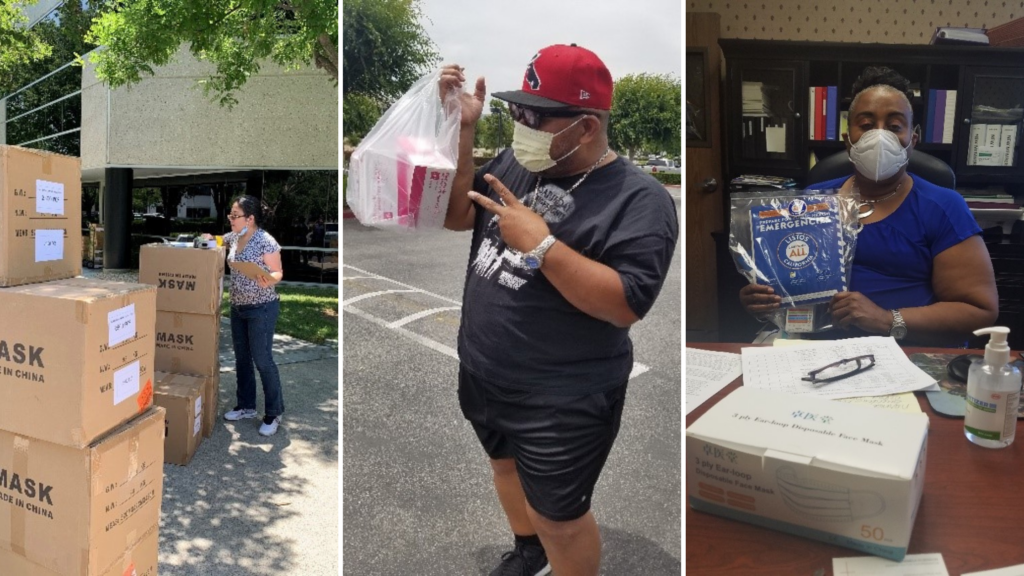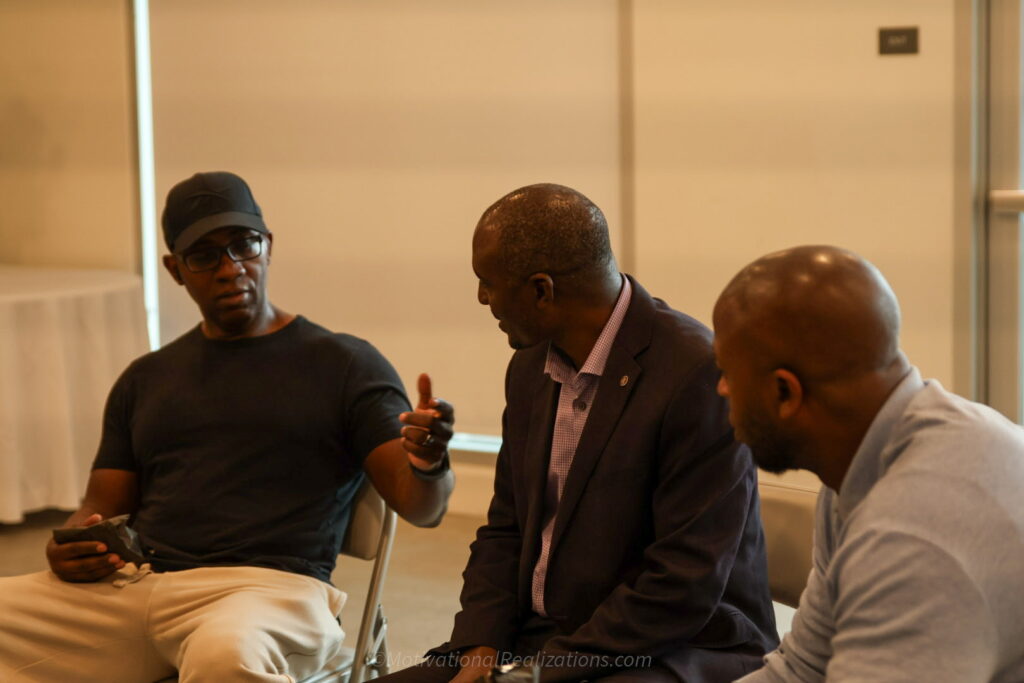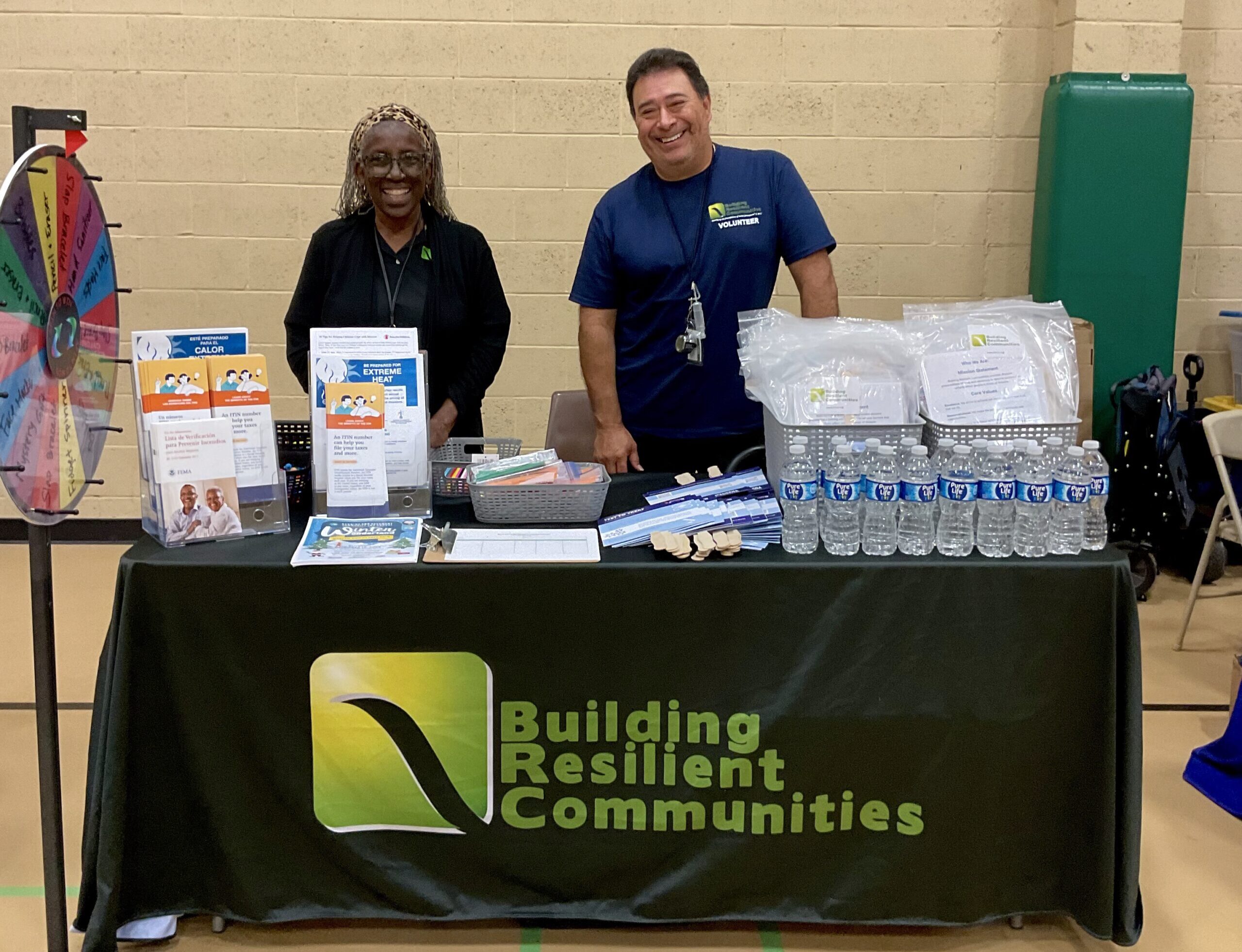When a disaster strikes—be it a wildfire, earthquake or pandemic—the most vulnerable communities are often the least prepared, under-resourced and most severely impacted.
In times of crisis, these communities must not be forgotten or ignored; they need the opportunity to recover and build back more resiliently. This mission is at the heart of Building Resilient Communities (BRC), founded in 2012 by Debra Williams, after she heard a pastor talk about the importance of disaster preparedness.
BRC provides training and resources to promote equity in disaster preparedness, response, and recovery, particularly emphasizing support for Black communities, which are disproportionately affected by disasters and emergencies due to systemic inequities and environmental/social factors.
Faith-based organizations, such as churches, often serve as beacons of hope and refuge during emergencies and crises, which is where Building Resilient Communities began its work. Initially, they partnered with congregations to provide disaster preparedness assessments, training, planning tools, consulting services, access to high-quality, discounted emergency supplies and training.
This ensured that faith-based organizations could effectively react and serve their congregation during crises. Since then, the Redlands-based nonprofit has expanded its outreach and emergency services, often acting as one of the first responders to communities in emergencies ranging from natural disasters like fires, floods, and earthquakes, to health emergencies such as pandemics and climate-change-related events.
Debra Williams, the founding CEO, emphasized that through relationship-building and community engagement over the years, BRC has become a trusted source of information, especially in Black communities during emergencies. It has also established itself as a vital partner for both San Bernardino and Riverside counties, as well as the California Office of Emergency Services (OES).
“We act like a conduit between both sides during emergencies,” said Williams. “We understand how to communicate vital information from our county partners directly to the community.”
The goal of BRC’s programs and initiatives is to enhance the resilience of local communities and bridge disparities in emergency preparedness and education in vulnerable populations. This approach is rooted in health equity—ensuring that overlooked and underserved communities have greater access to basic needs and are better positioned to respond to and recover from crises.
Through many of its initiatives, BRC addresses health equity and collaborates with local and state agencies to improve equitable access to emergency preparedness and prevention.
“Health equity is vital to disaster preparedness. Communities that have many underlying health conditions can be more susceptible to health-related disasters such as COVID-19. Addressing health equity can help communities that are already under resourced and underserved be more resilient and better able to prepare and recover from disasters, said Williams.”
BRC has been instrumental in responding to major emergencies across the region, from debris flows in the mountains to earthquakes in the remote town of Trona, and even the terrorist attack in San Bernardino in 2014. They have provided rapid assistance to communities needing it most during crises – especially during the COVID-19 pandemic, which systematically affected minority and vulnerable communities, particularly the Black community in the Inland Empire. According to the California Department of Public Health, minority populations, including Latino, Black and Native communities, experienced disproportionately higher rates of hospitalization and deaths due to COVID-19.

In response, BRC quickly mobilized at the onset of the pandemic by supplying personal protective equipment (PPE), such as masks, gloves and hand sanitizers, while also educating residents about the signs, symptoms and precautions necessary to prevent the virus’s spread. Subsequently, with coordination from county health departments, BRC began providing education and access to COVID-19 vaccines, creating open and safe spaces to address vaccine hesitancy and answer community questions.
During a COVID-19 vaccine clinic in Moreno Valley, Williams recalled a woman who was visibly anxious about receiving the vaccine. As a minister trained in emergency response, Williams calmly addressed the woman’s concerns, offered comfort, and prayed with her, fostering trust in a stressful moment. The woman, who decided to get vaccinated, later called out, “Debra, where are you?” and Williams stayed by her side, holding her hand throughout the vaccination process. The woman followed up with Williams when it was time for her second vaccine dose, asking, “Debra, you will be there, right?” A powerful testament on the importance of building trust and community during challenging times.
BRC continued to play a crucial role in the COVID-19 vaccination response by partnering with Riverside and San Bernardino counties to tackle vaccine hesitancy and misinformation through community engagement.
According to the California Department of Public Health, COVID-19 vaccine coverage was low amongst the African American population and other minority groups.
Through conversations with their community, Williams and her team discovered significant uncertainty among Black men regarding the COVID-19 vaccine. This hesitancy was rooted in distrust, overall reluctance and a combination of inequitable access to healthcare and avoidance of doctor visits.

In response, BRC developed the Brother2Brother initiative to foster community and fellowship among Black men, allowing them to discuss important topics such as physical and mental health, financial literacy, and spirituality. Led and attended by African American men across generations.
This unique fellowship has created a space for Black men to share their experiences, build support networks, and empower each other to break free from the feeling of “not being good enough,” while also creating clear pathways into higher education, stable jobs or entrepreneurship.
Brother2Brother has empowered hundreds of Black men of all ages with knowledge and resources to overcome barriers in health, mental wellness, relationships, personal development and leadership. At the same time, to help them reestablish stronger relationships with themselves, their families, their communities and one another.
As the emergency response to the pandemic winds down and federal funding diminishes, BRC is preparing for other health and environmental challenges, including mental health crises, the opioid epidemic, and disasters fueled by climate change.
“We teach in our training that often times we are the first responder for our family, friends and neighbors. We encourage every individual to be prepared to help themselves for at least fourteen days,” said Williams. “We ask participants to remember the acronym, YOYO. You are on your own.” Families and individuals across the Inland Empire can rely on Building Resilient Communities to be prepared for the next emergency, be there in times of crisis, and help come back stronger and more resilient.
Building Resilient Communities is one of 40 nonprofit organizations participating in IEHP Foundation’s Inaugural Champions for Vibrant Health Leadership Network, a two-year leadership development program for Inland Empire community-based organizations (CBOs) that address the social determinants of health.
